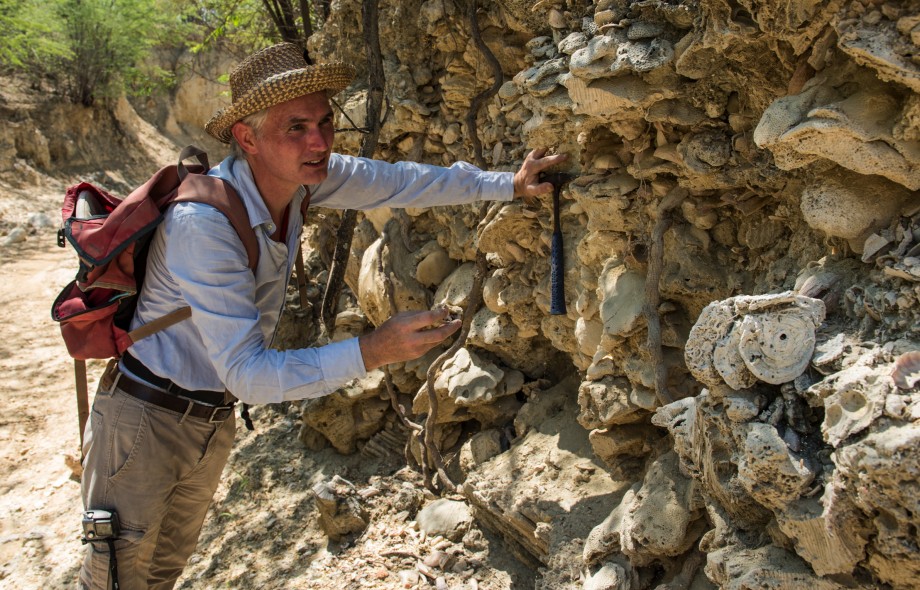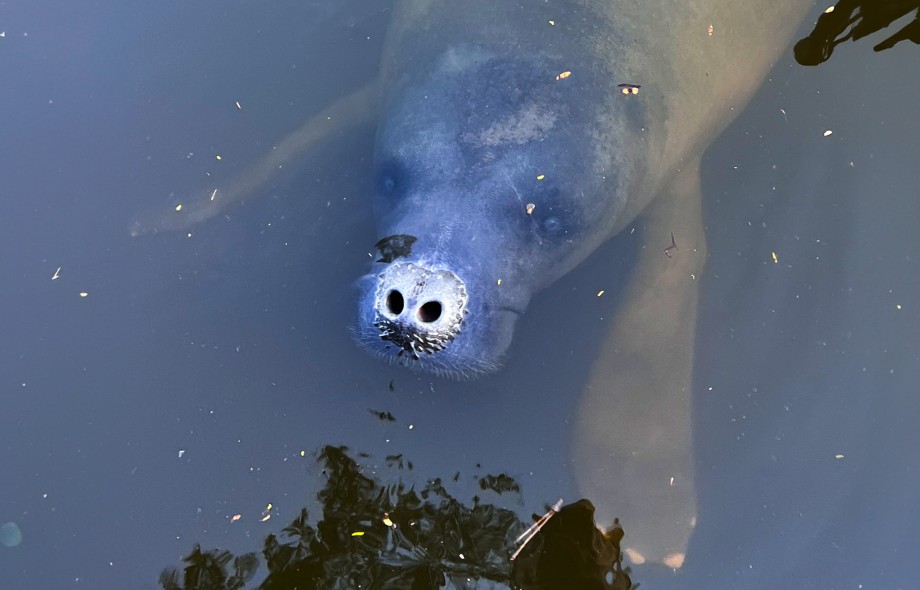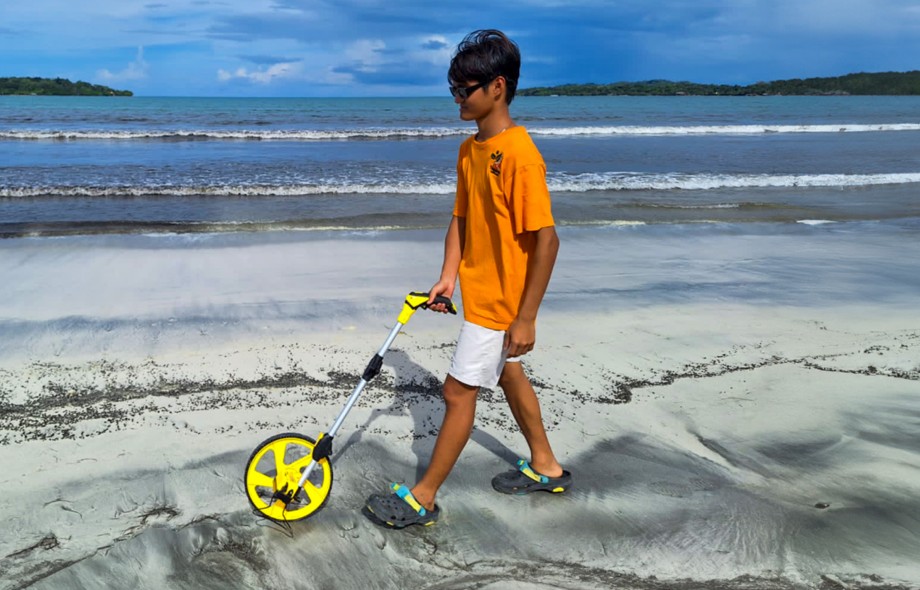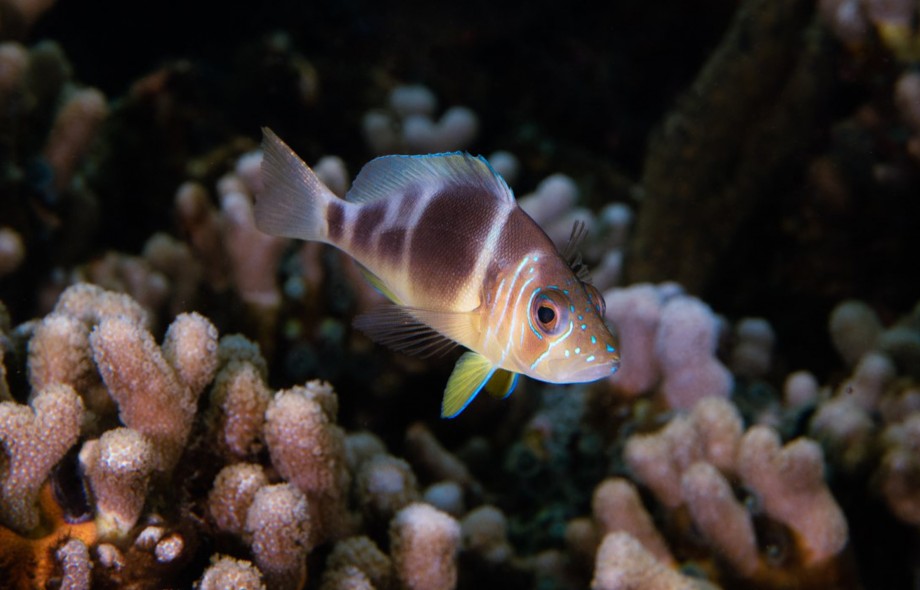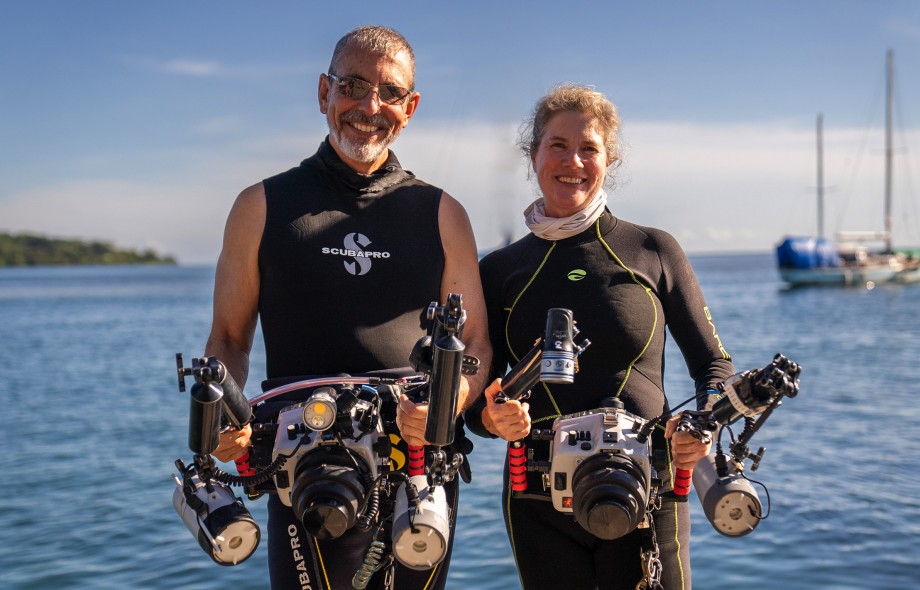A groundbreaking study of 7000-year-old exposed coral reef fossils reveals how human fishing has transformed Caribbean reef food webs: as sharks declined by 75% and fish preferred by humans became smaller, prey fish species flourished —doubling in numbers and growing larger. This unprecedented look into prehistoric reef communities shows how the loss of top predators cascaded through the entire food web, shifting the balance amongst coral reefs.

You are here
Projects
& Stories
Bocas del Toro
An improved method of identifying manatees by their vocalizations makes it easier to tell them apart, to better estimate their populations and help efforts for their conservation.
Students in Bocas del Toro helped Smithsonian researchers collect environmental data to better understand what factors influence the proliferation of algal deposits in the largest island of the archipelago
The first winner of the D. Ross Robertson Postdoctoral Fellowship for Field Studies on Neotropical Reef Fishes, Floriane Coulmance, tests a new, underwater camera system to study the connection between hamlet color patterns and genetics in fish from four countries around the Caribbean and Gulf of Mexico.
Extraordinary underwater naturalists contribute unique fish photos to STRI’s Caribbean and Tropical Eastern Pacific Shorefish Apps
Tropical coral species may have found an alternative habitat where they can thrive in the face of climate change.
